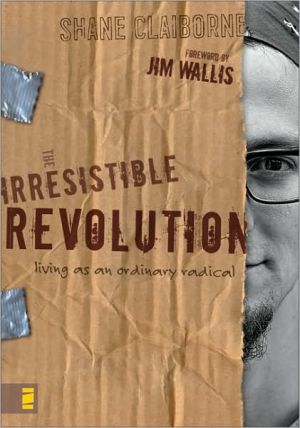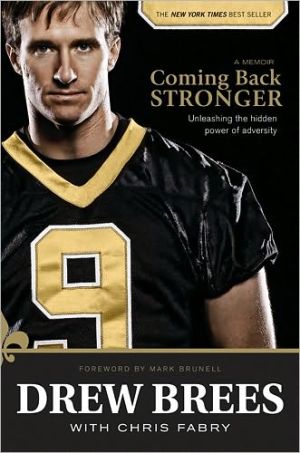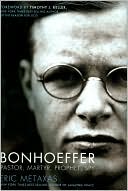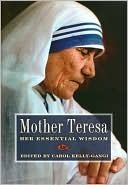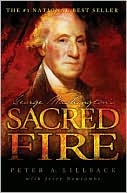The Irresistible Revolution: Living as an Ordinary Radical
Living as an Ordinary Radical\ Many of us find ourselves caught somewhere between unbelieving activists and inactive believers. We can write a check to feed starving children or hold signs in the streets and feel like we've made a difference without ever encountering the faces of the suffering masses. In this book, Shane Claiborne describes an authentic faith rooted in belief, action, and love, inviting us into a movement of the Spirit that begins inside each of us and extends into a broken...
Search in google:
Using unconventional examples from his own life, Shane Claiborne stirs up questions about the church and the world, and challenges readers to truly live out their Christian faith. Publishers Weekly If there is such a thing as a disarming radical, 30-year-old Claiborne is it. A former Tennessee Methodist and born-again, high school prom king, Claiborne is now a founding member of one of a growing number of radical faith communities. His is called the Simple Way, located in a destitute neighborhood of Philadelphia. It is a house of young believers, some single, some married, who live among the poor and homeless. They call themselves "ordinary radicals" because they attempt to live like Christ and the earliest converts to Christianity, ignoring social status and unencumbered by material comforts. Claiborne's chatty and compelling narrative is magnetic-his stories (from galvanizing a student movement that saved a group of homeless families from eviction to reaching Mother Teresa herself from a dorm phone at 2 a.m.) draw the reader in with humor and intimacy, only to turn the most common ways of practicing religion upside down. He somehow skewers the insulation of suburban living and the hypocrisy of wealthy churches without any self-righteous finger pointing. "The world," he says, "cannot afford the American dream." Claiborne's conviction, personal experience and description of others like him are a clarion call to rethink the meaning of church, conversion and Christianity; no reader will go away unshaken. (Feb.) Copyright 2005 Reed Business Information.
The Irresistible Revolution\ Living as an Ordinary Radical \ \ By Shane Claiborne \ Zondervan\ Copyright © 2006 The Simple Way\ All right reserved.\ ISBN: 0-310-26630-0 \ \ \ Chapter One\ WHEN CHRISTIANITY WAS STILL SAFE \ It's what always happens to the saints and prophets who are dangerous: we bronze them, we drain them of their passion and life and trap them in stained-glass windows and icons, confining them safely in memories of the past. St. Francis becomes a birdbath, Malcolm X is put on a stamp, and Martin Luther King gets a holiday. And Jesus gets commercialized, whether it's the plastic night-lights or the golden crucifixes. (And now there is a bobbing-head "Buddy Jesus" for your car and the "Jesus is my homeboy" T-shirt.) It becomes hard to know who Jesus really is, much less to imagine that Jesus ever laughed, cried, or had poop that smelled.\ I can remember when Christianity was still safe, comfortable, trendy. I grew up in the Bible Belt, in East Tennessee, where there's a church building on nearly every corner. I can't remember meeting anyone Jewish or Muslim, and I distinctly remember being dissuaded from dating a Catholic girl because she "prayed to Mary." I attended two or three different youth groups, whichever had the best entertainment and drew the largest crowd. Church was a place where there were cute girls, free junk food, and cheap snowboarding trips. I discovered a Christianity that entertained me with quirky songs and velcro walls.\ In middle school, I had a sincere "conversion" experience. We took a trip to a large Christian festival with bands, speakers, and late-night pranks. One night a short, bald preacherman named Duffy Robbins gave an invitation to "accept Jesus," and nearly our whole youth group went forward (a new concept for most of us), crying and snotting, hugging people we didn't know. I was born again. The next year, we went to that same festival, and most of us went forward again (it was so good the first time) and got born again, again. In fact, we looked forward to it every year. I must have gotten born again six or eight times, and it was great every time. (I highly recommend it.)\ But then you start to think there must be more to Christianity, more than just laying your life and sins at the foot of the cross. I came to realize that preachers were telling me to lay my life at the foot of the cross and weren't giving me anything to pick up. A lot of us were hearing "don't smoke, don't drink, don't sleep around" and naturally started asking, "Okay, well, that was pretty much my life, so what do I do now?" Where were the do's? And nobody seemed to have much to offer us. Handing out tracts at the mall just didn't seem like the fullness of Christian discipleship, not to mention it just wasn't as fun as making out at the movies.\ I was just another believer. I believed all the right stuff-that Jesus is the Son of God, died and rose again. I had become a "believer," but I had no idea what it means to be a follower. People had taught me what Christians believe, but no one had told me how Christians live.\ SPIRITUAL BULIMIA\ So as we do in our culture, I thought perhaps I needed to buy more stuff, Christian stuff. Luckily, I found an entire Christian industrial complex ready to help with Christian music, bumper stickers, T-shirts, books, and even candy ("Testa-mints" ... dead serious ... mints with a Bible verse attached, candy with a Christian aftertaste). They had lists of bands and the Christian alternatives to them, so I got rid of all my old CDs. (And I must confess, I was a bit disappointed by the Christian counterfeit. Who could compare to Guns N' Roses and Vanilla Ice?) And I bought books, devotionals, T-shirts. I developed a common illness that haunts Western Christianity. I call it spiritual bulimia. Bulimia, of course, is a tragic eating disorder, largely linked to identity and image, where folks consume large amounts of food but vomit it up before it has a chance to digest. I developed the spiritual form of it where I did my devotions, read all the new Christian books and saw the Christian movies, and then vomited information up to friends, small groups, and pastors. But it had never had the chance to digest. I had gorged myself on all the products of the Christian industrial complex but was spiritually starving to death. I was marked by an overconsumptive but malnourished spirituality, suffocated by Christianity but thirsty for God.\ It was Mark Twain who said, "It's not the parts of the Bible I don't understand that scare me, but the parts I do understand." I don't know if you've read the Bible, and if you haven't, I think you may be in a better place than those of us who have read it so much that it has become stale. Maybe this is why Jesus says to the religious folks, "the tax collectors and the prostitutes are entering the kingdom of God ahead of you" (Matt. 21:31). For me, it became hard to read the Bible and walk away as if I had just watched a nice movie. Jesus never seemed to do anything normal. How about the fact that his first miracle was the old turning-water-into-wine thing to keep a party going? (Not a miracle that would go over well in some Christian circles.) And there's that time Jesus' friends leave him on the shore. If we had been in Jesus' shoes, some of us might have yelled for them to come back. Others might have jumped in the water and swum out to the boat. But Jesus just steps on the blessed water (Matt. 14:22-26). That's nuts. It scares his friends to death. Or take healing a blind person, for instance. I've seen people gather around and lay hands on the sick. Others anoint people with oil. But when Jesus wants to heal a blind guy, he picks up some dirt off the ground, spits in it, and then wipes it on the dude's eyes (John 9:6). That's weird. No one else did that. Can you imagine the other religious leaders? "Rabbi, could you hack me up a holy loogie?" Not a chance. No one else did stuff like that. Only Jesus would be crazy enough to suggest that if you want to become the greatest, you should become the least. Only Jesus would declare God's blessing on the poor rather than on the rich and would insist that it's not enough to love just your friends. I began to wonder if anybody still believed Jesus meant those things he said. I thought if we just stopped and asked, What if he really meant it? it could turn the world upside-down. It was a shame Christians had become so normal.\ JESUS WRECKED MY LIFE\ I know there are people out there who say, "My life was such a mess. I was drinking, partying, sleeping around ... and then I met Jesus and my whole life came together." God bless those people. But me, I had it together. I used to be cool. And then I met Jesus and he wrecked my life. The more I read the gospel, the more it messed me up, turning everything I believed in, valued, and hoped for upside-down. I am still recovering from my conversion. I know it's hard to imagine, but in high school, I was elected prom king. I was in the in-crowd, popular, ready to make lots of money and buy lots of stuff, on the upward track to success. I had been planning to go to med school. Like a lot of folks, I wanted to find a job where I could do as little work as possible for as much money as possible. I figured anesthesiology would work, just put folks to sleep with a little happy gas and let others do the dirty work. Then I could buy lots of stuff I didn't need. Mmm ... the American dream.\ But as I pursued that dream of upward mobility preparing for college, things just didn't fit together. As I read Scriptures about how the last will be first, I started wondering why I was working so hard to be first. And I couldn't help but hope that there was something more to life than pop Christianity. I had no idea what I should do. I thought about leaving everything to follow Jesus, like the apostles, and hitting the road with nothing but my sandals and a staff, but I wasn't sure where to pick up a staff.\ There were plenty of folks talking about the gospel and writing books about it, but as far as I could tell, living out the gospel had yet to be tried in recent days. So youth group got a little old-the songs got boring, the games grew stale, and I found other places to meet fine women. I wasn't sure the church had much to offer. Of course, I didn't dare stop going to church, convinced that "going to church" is what good people do, and I didn't want to become like "those people" who don't "go to church." Heathens. Ha. So I sucked it up and went every week, often cynical, usually bored, but always smiling.\ (Continues...)\ \ \ \ \ Excerpted from The Irresistible Revolution by Shane Claiborne Copyright © 2006 by The Simple Way. Excerpted by permission.\ All rights reserved. No part of this excerpt may be reproduced or reprinted without permission in writing from the publisher.\ Excerpts are provided by Dial-A-Book Inc. solely for the personal use of visitors to this web site. \ \
1When Christianity was still safe352Resurrecting church533In search of a Christian694When comfort becomes uncomfortable915Another way of doing life1156Economics of rebirth1557Pledging allegiance when kingdoms collide1918Jesus made me do it!2239Jesus is for losers24310Extremists for love26711Making revolution irresistible28912Growing smaller and smaller ... until we take over the world31513Crazy but not alone341App. 1Local revolutions and ordinary radicals359App. 2Marks of a new monasticism363App. 3To Iraq365
\ Youth Worker Journal'Shane dares readers to evaluate their lives and reimagine a first-century posture to following Jesus in the 21st century....If you want a comfy Christian life, this book is not for you. But if you want to be challenged, uncomfortable, and even changed, it is a must read.' — Youth Worker Journal\ \ \ \ \ e Pistle (Evangelicals for Social Action)'Editor's Pick!...Inspiring. Fascinating. Challenging. Convicting. Loving. These are just a few of the words that describe the extraordinary story of Claiborne's journey from middle-class Christianity in east Tennessee to radical incarnational faith among the poor in inner-city Philadelphia.' — e Pistle (Evangelicals for Social Action)\ \ \ YouthWorker Journal'Shane dares readers to evaluate their lives and reimagine a first-century posture to following Jesus in the 21st century....If you want a comfy Christian life, this book is not for you. But if you want to be challenged, uncomfortable, and even changed, it is a must read.' -- YouthWorker Journal \ \ \ \ \ ePistle (Evangelicals for Social Action)'Editor's Pick!...Inspiring. Fascinating. Challenging. Convicting. Loving. These are just a few of the words that describe the extraordinary story of Claiborne's journey from middle-class Christianity in east Tennessee to radical incarnational faith among the poor in inner-city Philadelphia.' -- ePistle (Evangelicals for Social Action) \ \ \ \ \ Youthworker Journal'This is the book that will not let me go....this book has called me, and many others, to action, to a different kind of life....if you read it seriously, it may mess with your mind, heart and even your life.' -- Youthworker Journal \ \ \ \ \ Publishers WeeklyIf there is such a thing as a disarming radical, 30-year-old Claiborne is it. A former Tennessee Methodist and born-again, high school prom king, Claiborne is now a founding member of one of a growing number of radical faith communities. His is called the Simple Way, located in a destitute neighborhood of Philadelphia. It is a house of young believers, some single, some married, who live among the poor and homeless. They call themselves "ordinary radicals" because they attempt to live like Christ and the earliest converts to Christianity, ignoring social status and unencumbered by material comforts. Claiborne's chatty and compelling narrative is magnetic-his stories (from galvanizing a student movement that saved a group of homeless families from eviction to reaching Mother Teresa herself from a dorm phone at 2 a.m.) draw the reader in with humor and intimacy, only to turn the most common ways of practicing religion upside down. He somehow skewers the insulation of suburban living and the hypocrisy of wealthy churches without any self-righteous finger pointing. "The world," he says, "cannot afford the American dream." Claiborne's conviction, personal experience and description of others like him are a clarion call to rethink the meaning of church, conversion and Christianity; no reader will go away unshaken. (Feb.) Copyright 2005 Reed Business Information.\ \
